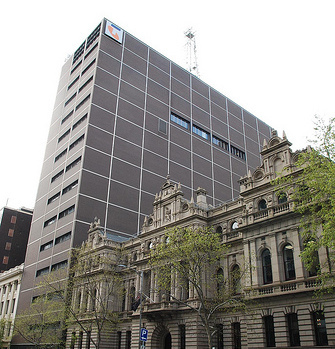"Nervous" ISPs want more fixed-line regulation

Telstra’s rivals are calling for stronger regulation surrounding access to Telstra’s facilities by those retail ISPs that are making use of the telco’s copper infrastructure.
But Telstra has dismissed these arguments, arguing that current regulation already imposes rules regarding access to its facilities including exchanges and equipment buildings.
The telecom service providers have made their respective cases in submissions to an ACCC inquiry into the current regulatory regime governing fixed-line services. The ACCC is inquiring whether any changes are needed in light of the more competitive market and the rollout of the NBN.
Optus used its submission to ask the ACCC to consider making facilities access itself a regulated - or declared - service. This would give the regulator the power to set up-front terms and conditions of access to Telstra infrastructure.
While existing regulations and Telstra’s structural separation undertaking (SSU) do have some requirements for equal access to facilities, Telstra would still have potential to impose additional barriers to entry to access seekers during the transition period to the NBN, Optus argued.
Optus also urged the ACCC to consider making the Telstra Equipment Building Access (TEBA) service - used for ISPs to acquire floor space and facilities on Telstra exchanges - a declared service. The submission notes that TEBA has the potential to be an “enduring bottleneck” for retail ISPs.
Optus also recommended the ACCC continue the current access declarations for Telstra fixed-line services for at least a further five years, noting that Telstra’s ability and incentive to discriminate on pricing for a competitive advantage will only increase as the NBN rollout progresses.
Telstra’s copper access network still underlies 95% of all end-user fixed line connections, and until the NBN rollout is complete it will remain the only ubiquitous national access network in Australia, the submission states.
But in its own response to the inquiry, Telstra argued that further regulation of facilities access is “unnecessary” and “unwarranted” because access is already thoroughly covered by existing rules.
“Telstra acknowledges that in the past, access seekers have faced difficulties in accessing some of its exchange buildings; however, that issue was resolved in 2008,” the submission states. In the wake of this ‘issue’, the ACCC imposed new access rules, and the SSU has further requirements.
“In other words, further regulation has already been put in place to address issues pertaining to facilities access and Telstra sees no need for any additional regulation.”
The submission also argues that the ACCC may lack the authority to make facilities access a declared service by including new terms in the final access determinations (FADs) for fixed-line services.
The Competition and Consumer Act 2010 specifies that the ACCC can make a declared service out of “a listed carriage service ... or a service that facilitates the supply of a listed carriage service”.
“Facilities access is not itself a carriage service,” the submission argues. “It would be wrong for the Commission to simply assume that it can regulate all facilities access through the FADs for the fixed-line services.”
Gartner Research Vice President Geoff Johnson said this argument doesn’t hold much water. “Telstra’s doing some gamesmanship,” he said. “If the ACCC didn’t have the authority it would request the authority it needs.”
He said Telstra rivals’ overall submissions to the inquiry are motivated by concern at rolling back some of the gains of the past few years. “After having won the structural separation all the rest of the carrier industry and the ISPs are nervous Telstra’s going to get some advantages back.”
Whether or not the ACCC will act on the concerns remains to be seen. “The regime in place for a few years is actually working reasonably well, but you never know what new changes from a new government might bring to the way it’s played in detail,” he said.
IBRS advisor Guy Cranswick said the ACCC is likely to consider calls for stronger regulation “as a means to ensure that consumers are not adversely affected by any market moves that could see reductions in competitive service delivery to the benefit of users. As the NBN is taking some time and there is uncertainty about revisions to that rollout, competition oversight is needed.”
Ovum Research Director for Telecoms David Kennedy said whether the ACCC will change the regulatory regime “will depend on the content of industry submissions and the quality of the arguments offered. But the ACCC has a history of acting on well-documented complaints by access seekers.”
That said, Kennedy expects only marginal changes to current regulation. “It is clear that well-run competitors have successfully grown profitable and sustainable fixed businesses in the current regulatory environment. This suggests that the current arrangements are functioning well,” he said.
With a new government in place and the NBN rollout underway, the long-term future of the regulatory environment for fixed-line services is hard to predict.
“Statements from [incoming Communications Minister Malcolm Turnbull] will be enlightening here as it will inform the market on how the government sees the rollout, the transition, market competition, and how Telstra will be managed by the government,” Cranswick said.
“As a pro-competition government - as it has said often - we might see consumer interests being held as a major priority and continuity of the ACCC role to keep the market open.”
Network slicing: A tailored network solution for enterprise businesses
Network slicing empowers enterprise businesses to harness the full potential of 5G technology by...
Hybrid environments are here to stay: ensure your technology is ready
These days it seems like it is all about software — so much so that software's integral...
Next-gen wireless network for PCEC
Perth Convention and Exhibition Centre has selected Hewlett Packard Enterprise HPE Aruba...




